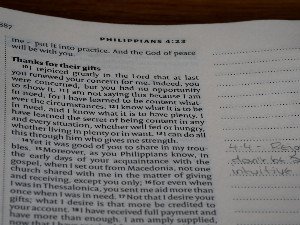Yahanan Yahanan
Praktik Berwakil Wali di Kantor Urusan Agama (Kua) Kecamatan Tenayan Raya
Introduction
Praktik berwakil wali di kantor urusan agama (kua) kecamatan tenayan raya. Mengungkap praktik delegasi wali nikah di KUA Tenayan Raya, Pekanbaru. Selidiki alasan wali nasab mewakilkan perannya dalam pernikahan Islam & dampaknya.
Abstract
Pernikahan adalah akad sangat kuat (mitsaqan ghalizon) untuk menaati perintah Allah dan melaksanakannya merupakan ibadah. Wali nikah merupakan salah satu rukun nikah yang harus terpenuhi. Kedudukan wali merupakan hal yang sangat penting dalam suatu pernikahan. Apabila perempuan menikah tanpa wali, maka pernikahannya batal. Pemahaman masyarakat di Kecamatan Tenayan Raya Kota Pekanbaru terkait pentingnya wali dalam pernikahan masih banyak yang tidak mengetahui. Dimana yang seharusnya wali berhak menikahkan perempuan dibawah perwaliannya justru dalam hal akad nikah wali nasab lebih memilih diwakilkan kepada penghulu ataupun tokoh agama.Tujuan penulisan ini untuk mengetahui praktik tawkil wali/berwkil walia dan alasannyaTRANSLATE with x EnglishArabicHebrewPolishBulgarianHindiPortugueseCatalanHmong DawRomanianChinese SimplifiedHungarianRussianChinese TraditionalIndonesianSlovakCzechItalianSlovenianDanishJapaneseSpanishDutchKlingonSwedishEnglishKoreanThaiEstonianLatvianTurkishFinnishLithuanianUkrainianFrenchMalayUrduGermanMalteseVietnameseGreekNorwegianWelshHaitian CreolePersian // TRANSLATE with COPY THE URL BELOW Back EMBED THE SNIPPET BELOW IN YOUR SITE Enable collaborative features and customize widget: Bing Webmaster PortalBack//
Review
This paper addresses a relevant and localized practice within Islamic marriage administration in Indonesia, specifically focusing on the delegation of the marriage guardian's (wali) role at the KUA Kecamatan Tenayan Raya. The abstract effectively highlights the foundational importance of the wali in Islamic jurisprudence, emphasizing its status as a pillar (rukun nikah) and the invalidity of marriage without one. It introduces a pertinent issue: the observed trend where biological guardians (wali nasab) choose to delegate their role to religious officials (penghulu or tokoh agama) due to what the authors perceive as a lack of understanding among the community. The stated objective to investigate both the practice of *tawkil wali* and the underlying reasons is clear and sets a practical scope for the study. The study's strength lies in its empirical focus on a specific KUA, offering valuable insights into the practical application and social interpretations of Islamic family law in a local context. Understanding the reasons behind the delegation of the wali's role is crucial, as it can unveil gaps in public religious education, convenience-driven decisions, or even cultural adaptations influencing religious practices. This research has the potential to contribute to the understanding of how Islamic legal principles are navigated and sometimes modified at the grassroots level within the structured framework of Indonesian state-sanctioned Islamic marriage. While the abstract clearly outlines the problem and the study's objective, it would benefit from further detail regarding its methodological approach. The absence of information on data collection methods, sample size (if applicable), or analytical framework makes it difficult to assess the rigor and depth of the impending analysis. Future iterations or the full paper should explicitly detail how the "practice" will be observed and how "reasons" will be elicited and interpreted. Furthermore, articulating the anticipated theoretical or practical implications of uncovering these reasons – for example, how the findings could inform KUA policies, public education campaigns, or scholarly discourse on Islamic family law – would significantly enhance the paper's overall contribution.
Full Text
You need to be logged in to view the full text and Download file of this article - Praktik Berwakil Wali di Kantor Urusan Agama (Kua) Kecamatan Tenayan Raya from Al-Fikra : Jurnal Ilmiah Keislaman .
Login to View Full Text And DownloadComments
You need to be logged in to post a comment.
Top Blogs by Rating
Beyond DNA: How Your Lifestyle...
By Sciaria
The Universe's Ghost Cities: W...
By Sciaria
Life's Grand Algorithm: Is Bio...
By Sciaria
Favorite Blog
Genetic Dark Matter: The Unsee...
By Sciaria
When Your Spirit Contradicts Y...
By Sciaria
The Compass You Didn't Know Yo...
By Sciaria
Related Research
Interactive excel e-module for grade vii informatics learning
Helena taylor, women writing antiquity: gender and learning in early modern france
Eksistensi lopis raksasa sebagai penguatan moderasi beragama berbasis kearifan lokal di kota pekalongan
Share
Notice Board
- A TRANSLATION STUDY OF THE MEANING AND AESTHETICS OF DRAMA SUBTITLES OF WHEN WE WERE YOUNG (人不彪悍枉少年) AS LITERARY WORKS ON WETV CHANNEL INDONESIA: A REVIEW OF LITERARY TRANSLATION THEORY
- RELIGIOUS, SPIRITUAL, SECULAR: SOME AMERICAN RESPONSES TO SEPTEMBER 11
- PAOLA CORTELLESI’S MAGIC SPELL: DOMESTIC VIOLENCE AND FAIRY-TALE SUBVERSION IN C’è ANCORA DOMANI (2023)





